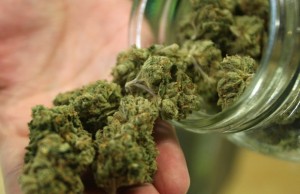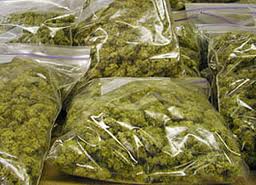 This past week in Annapolis a sweeping juvenile justice reform bill passed in the Maryland Senate, and now the bill heads to the House for debate. The 23-page bill proposes numerous modifications to the existing juvenile justice system, but perhaps the most noteworthy is the section that would eliminate most prosecutions of juveniles under the age of 13. Juvenile criminal courts currently have jurisdiction over children as young as 7, but the new measure would end criminal prosecution of children under 13 unless they are charged with crimes of violence such as first-degree assault, robbery, felony sex offenses, arson and attempted murder. In these situations, the minimum age for criminal prosecution in a Maryland juvenile court would become ten. This measure would free up resources for juvenile offenders who are facing more serious charges, and who may benefit from a wider range of services provided by the department.
This past week in Annapolis a sweeping juvenile justice reform bill passed in the Maryland Senate, and now the bill heads to the House for debate. The 23-page bill proposes numerous modifications to the existing juvenile justice system, but perhaps the most noteworthy is the section that would eliminate most prosecutions of juveniles under the age of 13. Juvenile criminal courts currently have jurisdiction over children as young as 7, but the new measure would end criminal prosecution of children under 13 unless they are charged with crimes of violence such as first-degree assault, robbery, felony sex offenses, arson and attempted murder. In these situations, the minimum age for criminal prosecution in a Maryland juvenile court would become ten. This measure would free up resources for juvenile offenders who are facing more serious charges, and who may benefit from a wider range of services provided by the department.
Another major change proposed in the juvenile justice bill would give more authority for intake officers to resolve cases before they are sent to court. Currently juvenile services intake officers must forward all felony cases to the State’s Attorney’s Office. The State then has 30 days to decide whether to file a juvenile delinquency petition in the appropriate circuit court. In contrast, a juvenile intake officer may resolve a misdemeanor by closing the case with a warning or offering informal supervision. Misdemeanor cases would still be able to be filed in the circuit court if the State or the victim objects to the intake officer’s decision. This is a long overdue modification, as it is a major waste of resources to set juvenile cases for intake hearings if there is no chance the case can be resolved. Intake hearings for felony cases are currently futile, as the officer’s hands are tied. Rather than keep a blanket provision that strips the intake officers of power to do their job, the legislature is moving toward trusting the officers to make a decision on a case-by-case basis. There are limitations on this proposal however, as intake officers would still have to forward all felony crimes of violence to the State, as well as cases where the allegation is causing or attempting to cause death or physical injury to another. The physical injury terminology may have to be revised to reflect serious bodily injury though, as physical injury is a rather general term.
The bill also adds a provision that allows the State and the defense to hold delinquency proceedings in abeyance in favor of a term of informal adjustment. If the State and defense agree, the child may have the ability to complete certain conditions and then be awarded with a dismissal of the delinquency petition. This type of diversionary track has traditionally been accomplished by way of a STET, but establishing an official system to avoid adjudications going on a juvenile’s record is a welcomed tool. Other new provisions include reducing the time between detention hearings for all juveniles held to every 14 days instead of every 25 days, and barring juveniles from being sent to out-of-home placements if the most serious charge is a misdemeanor or on a technical violation of probation. Firearm offenses would be the exception to this provision, and may still result in placement out of the home.
 Criminal Defense Lawyer Blog
Criminal Defense Lawyer Blog







